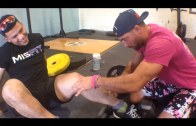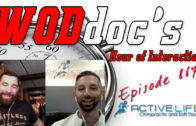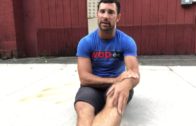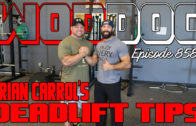Nailing down our team
With the ability to make choices came the responsibility of building my team. If there’s one big lesson I learned, this is it: we are strongly influenced by the company we keep, for better or for worse. If you want to improve in your sport, surround yourself with people who are better than you, who know more, who perform better, who push you. If you want to be a better person, why not approach it the same way? Surround yourself with those who value the same things, who push you, who change you. I want to be a thinker, a fighter, a challenger, so I choose to be around people who bring me closer to those goals. My husband and coach, Mike, and my rowing partner, Sarah, are the rocks of my squad and I feel lucky to have shared so much of this journey with them.
The 90/90 Rule
Over the last four years, many people have come in and out of my life. There have been teammates, coaches, business partners, and friends that have come and gone. I’ve realized that some will be with me forever, and some relationships weren’t meant to last. I’ve learned to appreciate people for who they are, what makes them unique, and how we can positively influence each other right now. A sport psychologist I worked with taught me the 90/90 rule – if you’re not 90% sure that a partnership will work after 90 days of testing it out, you’re better off parting ways. And I think at its core, this is a beautiful principle. Accepting that a person might not be right for you in the long run doesn’t mean you can’t appreciate them in the moment.
Getting comfortable with being uncomfortable
Most people have a hard time taking criticism, even if it’s constructive. When you’ve reached the pinnacle of your sport and someone tells you that you’re doing it wrong, it would be easy to say, “No thanks, I’m all good.” When one of my coaches told me I needed to start over and completely relearn how to move, I wasn’t sure what to think. Looking back, I’m glad something made me listen and I let myself be vulnerable. I was put into incredibly uncomfortable situations, in training, in racing, and in life. The mental and physical discomfort wasn’t easy to embrace, but it’s where the magic happened. The more comfortable I became with being uncomfortable, the easier it became to make positive change.
I really don’t need sh*t
Over the course of the Olympic year, we lived in 7 different cities. Mike and I got rid of almost everything we owned, put the rest into storage, and traveled around with two suitcases. Newport Beach, CA –> Boston, MA –> Sarasota, FL –> Chula Vista, CA –> Cambridge, New Zealand –> Sacramento, CA –> Chula Vista, CA –> Princeton, NJ. Phew, I’m tired. One year later, I barely remember what’s in that storage unit, and I don’t think we need much of it anymore. This was another incredibly important lesson we learned — the company we kept and the experiences we had were so special that it became pretty obvious our “stuff” wasn’t all that important. In a weird way, we established a new minimalist hierarchy of needs. For us, that looks like: love, shelter, food, and fitness. I know this might sound ridiculous, but for us to thrive we need these four needs met to be our most productive selves. So I guess this journey either taught me to live simply, or it’s an awesome excuse for a brand new wardrobe.











